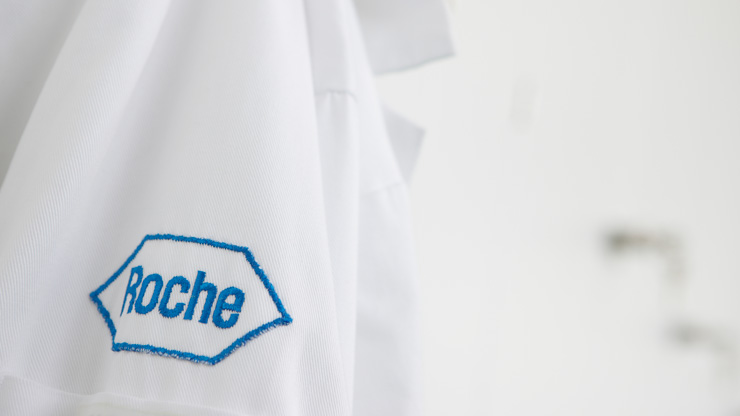Roche to co-develop remdesivir rival in partnership with Atea

Roche may not be the first company that comes to mind for a COVID-19 treatment, but the Swiss firm is taking a big swing at the market to rival Gilead’s remdesivir.
The company has joined forces with Atea Pharmaceuticals to develop, manufacture and distribute Atea’s investigational oral direct-acting antiviral AT-527.
AT-527 works by blocking the viral RNA polymerase enzyme needed for viral replication.
It is currently being studied in a phase 2 clinical trial for hospitalised patients with moderate COVID-19. Phase 3 trials are expected to start in Q1 2021, and will test the drug outside of the hospital setting.
If successful, this would make it the first oral treatment option for COVID-19 for patients that are not hospitalised.
If the drug is approved, Atea will be responsible for distributing it in the US, with the option to request Genentech’s support, and Roche will distribute in the rest of the world.
"The ongoing complexities of COVID-19 require multiple lines of defence," said Bill Anderson, CEO of Roche Pharmaceuticals. “By joining forces with Atea, we hope to offer an additional treatment option for hospitalised and non-hospitalised COVID-19 patients, and to ease the burden on hospitals during a global pandemic."
"In jointly developing and manufacturing AT-527 at scale, we seek to make this treatment option available to as many people around the world as we possibly can."
Roche has been studying its already-approved anti-inflammatory drug Actemra (tocilizumab), branded as RoActemra in some countries, to see if it can cut the chances of COVID patients needing a ventilator.
Until now results have been disappointing – in July the COVACTA trial failed after it showed that Actemra could not improve clinical status in patients with COVID-19.
But the findings of the latest phase 3 study, EMPACTA, could change that after Roche said it plans to share results with the FDA and other regulators to get its label expanded on the basis of the latest results.
Roche has also developed a COVID antibody test, with CEO Severin Schwan branding the state of testing at the start of the pandemic as a “disaster”.
“Some of these companies, I tell you, this is ethically very questionable to get out with this stuff,” Schwan told reporters in a quarterly results conference call.
“It’s a disaster. These tests are not worth anything, or have very little use,” he added.
The release of these tests helped prop Roche up in Q3 as biosimilar rivals took a bite out of its pharmaceutical sales.











